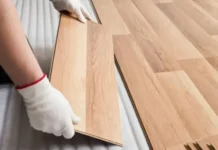Did you know that, on average, 1 in 50 homeowners will have to file an insurance claim to cover the cost of water damage in any given year? A basement flood can be catastrophic, and it can cost thousands of dollars to fix.
If your basement is currently flooded, don’t panic. While the situation is stressful, the best way to deal with a flooded basement is by taking it one step at a time. Keep reading for 5 tips on what to do when your basement floods.
Put Safety First
If you have a flooded basement, the first thing you need to do is put your safety first. There are several different risks involved with having a flooded basement, such as electricity or contaminated water.
Before going into the basement, turn off the electricity if the breaker box is not in the basement. If the water is near any appliances, cords, or outlets, there is a risk of electrical shock.
It is important to know what type of water is in the basement. If you are working with contaminated water, there are several health risks to being in contact with the water.
If you suspect that the water is contaminated, reach out to a professional, such as Am:Pm Restoration and Construction inc.
Call Your Insurance Company
The next step to dealing with a flooded basement is to call your insurance company. They will help determine if the flood damage is covered by insurance.
While insurance normally covers flooding due to pipe breaks or appliance issues, they often don’t cover natural disaster damage. If you live in an area that is prone to flooding, you may want to find a policy that covers natural disasters.
Pump out the Water
To start the flooded basement cleanup, you will start by pumping out the water. To do this, you will need a special vacuum cleaner. Don’t forget to wear personal protective equipment to protect yourself from the water.
If dealing with contaminated water or if you don’t have the right vacuum, contact professionals to get rid of the water for you.
Dry Your Basement
Once you have pumped out the water, you will need to dry out the basement. The best way to dry your basement is by using fans and de-humidifiers. If there is any moisture left in the basement, mold may develop.
Check for Mold
After your basement has dried out, you will need to check for mold and mildew. Mold can begin growing in your basement after 24 hours of being wet. Be sure to check all your belongings, the wall, and the floor for any signs of mold.
Now You Know What to Do When Your Basement Floods
Basement flooding can be stressful, but if you know what to do when your basement floods, it can make the clean-up easier.
If you have basement flood damage, make sure to be safe, call your insurance provider, pump out the water, dry the basement, and check for mold.
Did you enjoy reading this article on basement floods? If so, check out our other articles in the home improvement category for more home tips!



































































